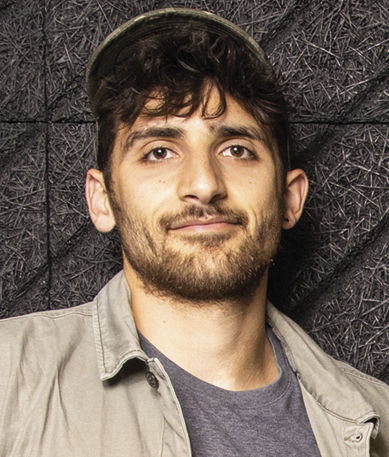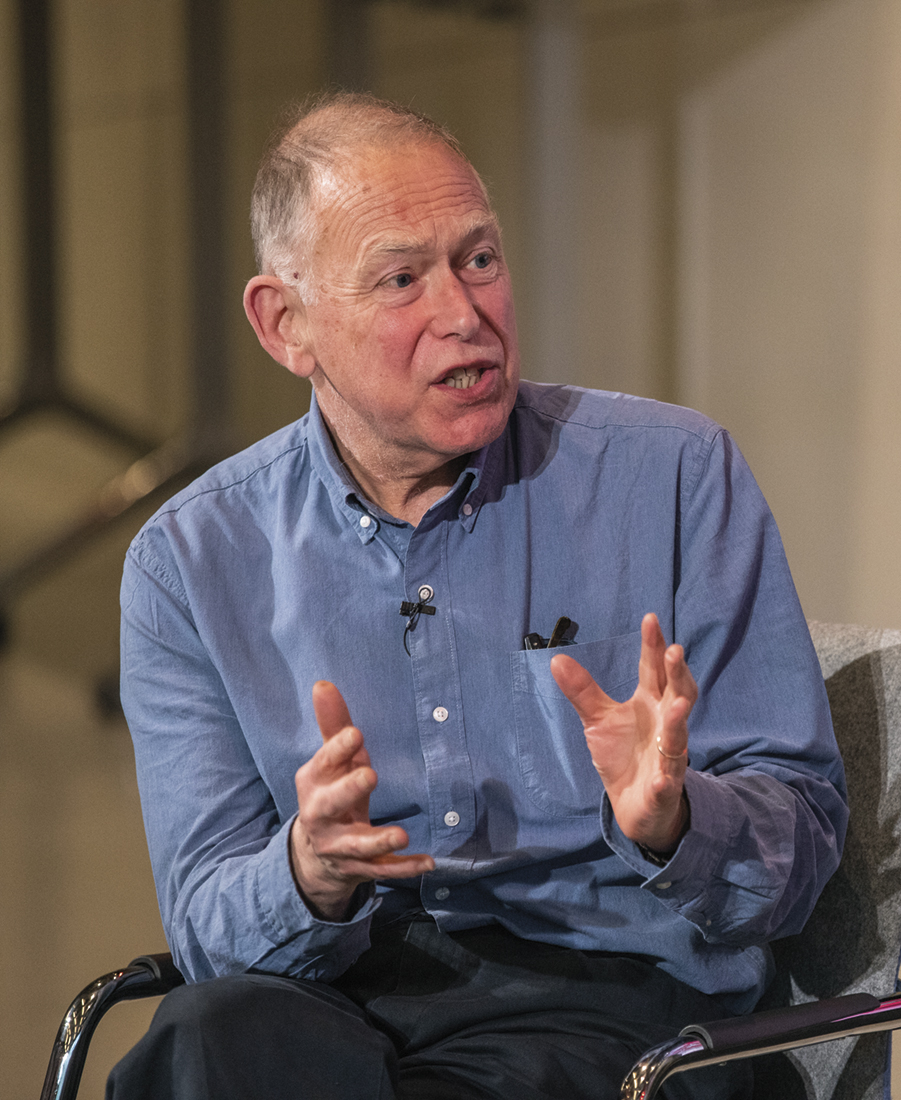A panel of investigative journalists share their approaches to unearthing stories with Matthew Bell
Arguably, the world has rarely been more in need of investigative journalism. Corrupt politicians; election meddling, state repression, business shenanigans, cheating in sport.… the list is endless. An RTS Futures event in May was therefore timely, with leading journalists discussing how they seek to right wrongs and bring the powerful to justice.
Truth seeking is not for the faint-hearted: it requires exhaustive research and dogged patience – and, for those journalists investigating the world’s most oppressive regimes, bravery. In truth, it’s probably a young person’s game.
"Certain stories need risk-taking, otherwise you can’t tell them"
“When you’re young, you’re going to do your best work – you’re fearless and you take risks that you wouldn’t take when you’re older,” said David Henshaw, a former BBC reporter and producer who has run his own indie, Hardcash Productions, for almost three decades. The multi-award-winning film-maker received an RTS Fellowship in 2009.
Hardcash has filmed, openly and undercover, in some of the world’s most perilous places, including North Korea, Iran, and Saudi Arabia. “There’s a kind of illusion now among broadcasters that somehow you can make this kind of journalism risk-free. It is always going to be risky and you only get the really good stuff by taking risks,” Henshaw insisted.
“My happiest and most productive times were getting on a plane with a folder of notes, and going to a civil war not knowing what the hell I was getting into but knowing there was a story there.”
“It’s my choice if I go somewhere dangerous,” said the journalist and documentary film-maker Ben Zand. In 2016, he received the Young Talent of the Year prize at the RTS Television Journalism Awards for his films on BBC Two’s Victoria Derbyshire programme.
“Certain stories need risk-taking, otherwise you can’t tell them, but, at the same time, it’s about taking sensible risks,” said Zand, who shot a documentary with Venezuela’s kidnap gangs.
Zand’s films cover a wide spread of subjects. He recently made two films about R&B artist R Kelly, who has been accused of multiple cases of sexual abuse, for BBC Three. His latest documentary – Channel 4’s Confessions of a Serial Killer, which aired at the end of May – tells the story of Samuel Little, who claims to have killed at least 90 women over 40 years in the US.
Not all risks are physical, as Channel 4 News journalist Ed Howker, who works on the programme’s investigations unit, explained. “We often look at big elements of western states to see how we can effectively hold them to account,” he explained. The risks he faces are mostly legal.
Howker worked on the RTS award-winning Data, Democracy and Dirty Tricks investigation into Cambridge Analytica.
“I rather like the Ofcom code in a peculiar way because it does force you to constantly think about being fair-minded. And, if we’re trying to do the job properly, we should all be fair-minded,” said Howker. “But, in its worst interpretation by lawyers, it can blunt your spear.”
A few years ago, Howker found himself in court, falsely accused of having “hacked an individual, a twice-bankrupted tax exile, as it happens”. He recalled: “I had to stand up in front of a judge and not reveal who my source was, while also denying that I’d hacked. The proof that I hadn’t hacked was obviously to reveal my source, but I couldn’t do that.” Howker kept the source’s identity to himself.

(Credit: Paul Hampartsoumian)
Vice UK associate editor Sirin Kale was behind the anti-stalking campaign Unfollow Me and produced a documentary on the life and death of a woman, who had been murdered by her stalker ex-boyfriend. Kale said that her investigations “always start with a human story at their heart”, but she is also a firm believer in using data to help tell stories.
She used the Freedom of Information Act to request information from every police force in the UK: “I asked how many women had reported stalkers to the police prior to their deaths [at the hands of] the stalker.” The results were shocking: 60 women had been murdered by partners, exes or stalkers, despite reporting them to the police.
“You need the data to create a story, but then you need a human story for people to care about. And the human story has to come from the victims and survivors,” she continued. “You have to amplify their voices, because they are the people who’ve been affected.”
“I wanted the investigation to be picked up by the BBC, on Woman’s Hour and Victoria Derbyshire, which it was,” she continued. “That’s what people with connections listen to and, if you want to change policy, you need to get into those people’s spheres.”
More than anything, investigative journalism needs the backing of broadcasters – it frequently takes time and money to tease out a story and film the programme. “We had an investigation that went out on ITV about a month ago, The Priory: Teenage Mental Health Exposed, which had taken 18 months. It was extremely expensive and I’m very grateful to ITV for funding that,” revealed Henshaw. “Not many broadcasters are prepared to put that kind of money and commitment in.”
The RTS Futures event ‘Investigations uncovered’ was held at Rocket Space in London on 15 May. It was chaired by investigative film-maker Livvy Haydock and produced by Reem Nouss and Ed Gove.
Why I chose investigative journalism

(Credit: Paul Hampartsoumian)
David Henshaw: ‘I drifted into it – it wasn’t a career plan.… I joined the BBC when I was just 30, working on an investigative programme for Radio 4.… I [knew it] was what I really wanted to do. It combined all the things I was interested in: history, geography, culture and current affairs. It hasn’t stopped being interesting and that was a long time ago.’
Ben Zand: ‘I did journalism at university and knew I wanted to be a documentarist early on, but I didn’t know what type of documentaries I wanted to make.… Investigative journalism feels as though you are contributing something valuable to society – and it is the best form of journalism to have an impact and bring about change.’
Sirin Kale: ‘You can genuinely change things, which you can’t do in other forms of journalism.… If you see… an injustice…you can [fight] it and even change the law.’
Ed Howker: ‘The kind of journalism that we’re talking about is romantic – often it completely takes over your life.… It’s designed to create high-impact, public-interest stories and I don’t see it as distinct or rarefied from regular journalism, except that you have more time.’

(Credit: Paul Hampartsoumian)
How to get started in TV
‘At the heart of [investigative journalism] is spotting a story, and a story isn’t something you’re going to come across by brainstorming,’ said David Henshaw. ‘Spotting a story is something that you have to have an instinct for.
‘In 25 years of running [my indie] Hardcash, on two occasions I’ve got a story, which turned into a commissioned film, from reading the letters column of the Daily Mirror. [One of them] was from the National Missing Persons Helpline, about a bloke who’d gone missing in Tenerife on holiday in the mid-1980s.
‘Number one, “Why do you go missing on holiday?” and, two, “Why do people think he’s still alive?”’ The story was told in the Channel 4 documentary Looking for Ricky.
‘There’s always an appetite for interesting stories,’ said Sirin Kale. ‘Listen to people, because they often have interesting things to say – so many stories that I’ve got have come from conversations in the pub.…
‘It’s really hard for journalists breaking into the industry to get a staff job, but one thing that will never change is that commissioning editors are looking for good stories.’
Ben Zand added: ‘Stories are journalism – you don’t have a career unless you can come up with stories.
‘You need to figure out what the potential outlets are. If your story isn’t [suitable] for Panorama, don’t go to the Panorama commissioner.’
Henshaw advised: ‘If you have a story, that’s your property and a bargaining tool. So, if you’re offering it and you then do a deal with the production company, make sure that you define your role in that film.’
He explained that having access to a story – even if you lack TV experience – can get you on to a production team.
The investigative film-maker Livvy Haydock, who chaired the RTS Futures discussion, added: ‘If you’ve got the key access – or even one bit of it – you’re already way ahead of everybody else.’
Contacts are key, argued Ed Howker. ‘If you know people who are experts in certain areas or have a very good sense of what’s happening in their community, try to keep your relationship with them going. If people have had a good experience with you in the past, they are more likely to tell you things in the future.’
Confidence matters, too, said Kale: ‘Don’t assume that other people can report a story better than you – don’t be intimidated.’
That said, you have to learn to deal with being turned down. ‘It’s a hard world, so you need to get used to rejection,’ said Zand. ‘Learn from people who have done it before and try to slowly move up the ladder.’


